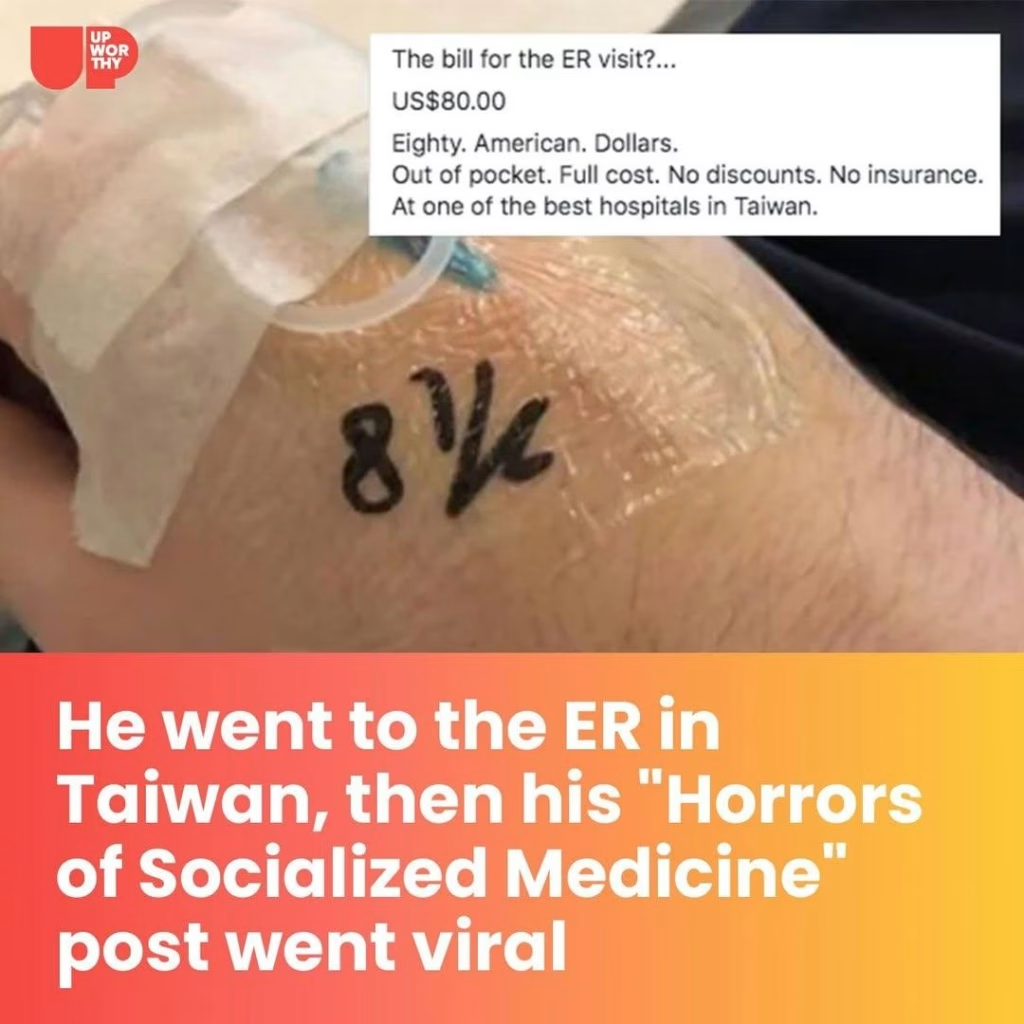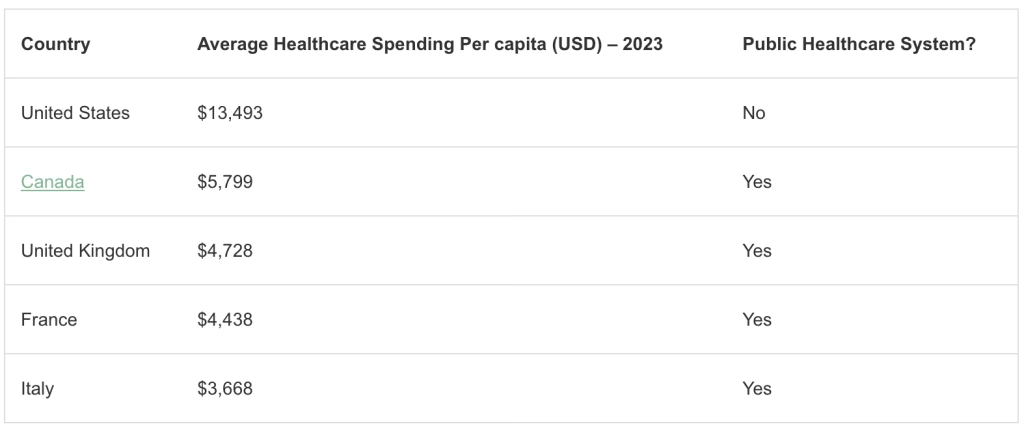Many U.S. Americans are forced to seek healthcare outside of the U.S. due to prohibitive cost and private insurance denial of claims. The solution is single-payer reform and the elimination of corporate monopoly over public-funded healthcare.

We all know that Americans pay more for healthcare than every other country in the world. But how much more?
According to an American student who shared the story of his ER visit in a Taiwanese hospital, Americans are being taken to the cleaners when we go to the doctor. We live in a country that claims to be the greatest in the world, but where an emergency trip to the hospital can easily bankrupt someone.
Kevin Bozeat, a 25-year-old student at the time, had that fact in mind when he fell ill while studying in Taiwan and needed to go to the hospital. He didn’t have insurance and he had no idea how much it was going to cost him. He shared the experience in a now-viral Facebook post he called “The Horrors of Socialized Medicine: A first hand experience.”
It started with a stomach ache
Bozeat’s stomach began to hurt. Not thinking much of it, he went home to rest. Then, he started vomiting and couldn’t stop, unable to even keep water down. “My symptoms showed no signs of abating,” he wrote. “At this point I had to seek medical treatment, I knew I had to go to the hospital.”
“I wanted to avoid it,” he added. “I had no idea how different Taiwanese hospitals would be, whether I would be able to find an English speaking doctor, or what it would cost me (my US health insurance has lapsed and I don’t qualify for Taiwanese NHI).”
Taiwan’s National Health Insurance (NHI) is a single-payer system that covers all residents of Taiwan. Foreigners can take part in the system immediately upon obtaining a work permit, or after six months of living in the country. As a student, Bozeat hadn’t lived there long enough to be eligible yet.
But he needn’t have worried.
Bozeat’s bill for his entire hospital stay was a fraction of many insured American’s copays for emergency services.
Continue reading on Upworthy.com
For further reading on this topic: https://www.archyde.com/escaping-the-u-s-healthcare-crisis-americans-seeking-affordable-care-abroad/#the-rising-cost-of-care-drives-exodus
The rising Cost of care Drives Exodus
Jennifer Son Tak, facing ample medical bills for brain surgery, relocated to Italy to continue her Crohn’s disease treatment through the nation’s public health system. Similarly, Jason Kim of Texas, disillusioned after a $50 bill followed emergency surgery, is now exploring options outside of the country. Amy Willard, a cancer survivor, found financial stability in France after U.S.premiums and treatment costs threatened her livelihood. These personal stories highlight a growing desperation as the financial strain of healthcare becomes unbearable for many Americans.
According to a recent report by the Peterson-Kaiser Health System Tracker, average family health insurance premiums in 2024 reached $24,700 annually. [peterson-Kaiser Health System Tracker] Even with insurance, substantial copayments, deductibles, and uncovered services leave over 40% of Americans burdened with medical debt.This financial insecurity is pushing more people to consider international healthcare options.
A System in Crisis: Comparing costs
The United States stands alone among developed nations in its lack of universal healthcare, resulting in the highest medical spending per capita. This creates a two-tiered system where access to quality care is heavily dependent on income and insurance status. The situation is fostering a sense of anxiety, with many Americans fearing financial ruin due to unexpected medical needs.

Beyond Individual Burden: Societal Impact
Experts caution that this “quiet escape” is not solely an individual problem, but a systemic issue with broader implications. High medical costs stifle labor mobility, discourage entrepreneurship, and ultimately diminish the overall quality of life. This trend exacerbates existing inequalities and contributes to social polarization.
“Overseas migration can be a powerful motivator for low and middle-income Americans grappling with chronic conditions,” explains Gerald Kominski, a Professor of Public Health at UCLA. The absence of a robust social safety net leaves many vulnerable to financial devastation in the face of illness.
Continue reading at https://www.archyde.com